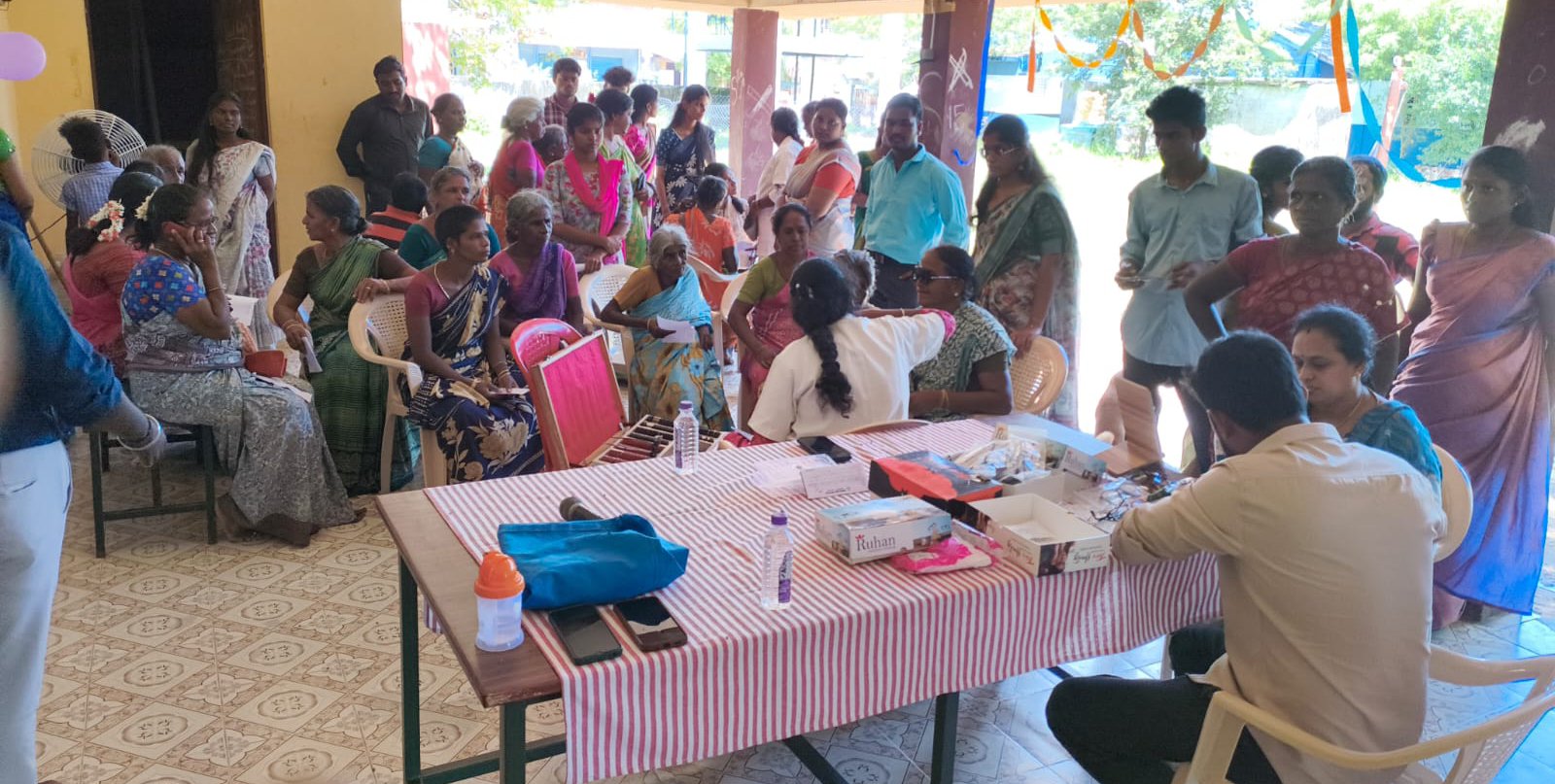
The Nalvidaigal initiative aims to cultivate a spirit of
reciprocity among our beneficiaries, encouraging
them to give back once they’ve secured employment.
Mentorship and Volunteering: Beneficiaries are guided
to participate in Siruthuligal-supported social initiatives
during their education
Employment Support: Assistance is provided to help
beneficiaries secure employment after their studies.
Giving Back: Employed beneficiaries are encouraged
to contribute to Siruthuligal’s educational support
schemes, helping future students.
Peer Mentorship: Beneficiaries then mentor new
students, continuing the cycle of support and
empowerment.

Objective: To develop and store key lessons and subjects required for competitive exams in industry-standard audio formats, making them readily accessible to both visually challenged and other students in need.
Competitive Examination Preparations: Providing access to school-level subjects for students revisiting fundamentals for exams.
Differently Abled Individuals: Offering audiobooks to those with visual impairments, learning disabilities, or dyslexia, making reading a less daunting or impossible task.

Objective: To empower volunteers to effectively communicate with visually impaired individuals, adapt to their unique needs, and serve as scribes, enhancing inclusivity and accessibility.
Student Volunteers attend requests from the visually challenged for online / offline examinations / assignments / entrance examinations / reading sessions. Though the volunteers are prompted to take reimbursement for such travel, our volunteers generally decline such offer and give it back to the students themselves.
Outstation requests are supported only if any volunteer stays nearby

In collaboration with Smart Hearts Institute, with whom Siruthuligal Foundation has an MOU for a 2-year Diploma in Medical Technology (DMLT), regular medical camps are organized to address health disparities and improve community health.
Provide Medical Care: Offering essential health services to underserved communities.
Educate Communities: Raising awareness about health, hygiene, and disease prevention.
Identify Health Issues: Detecting prevalent health problems within the community
Promote Preventive Healthcare: Encouraging proactive health measures to prevent diseases.
Respond to Emergencies: Assisting communities in times of urgent medical needs.

